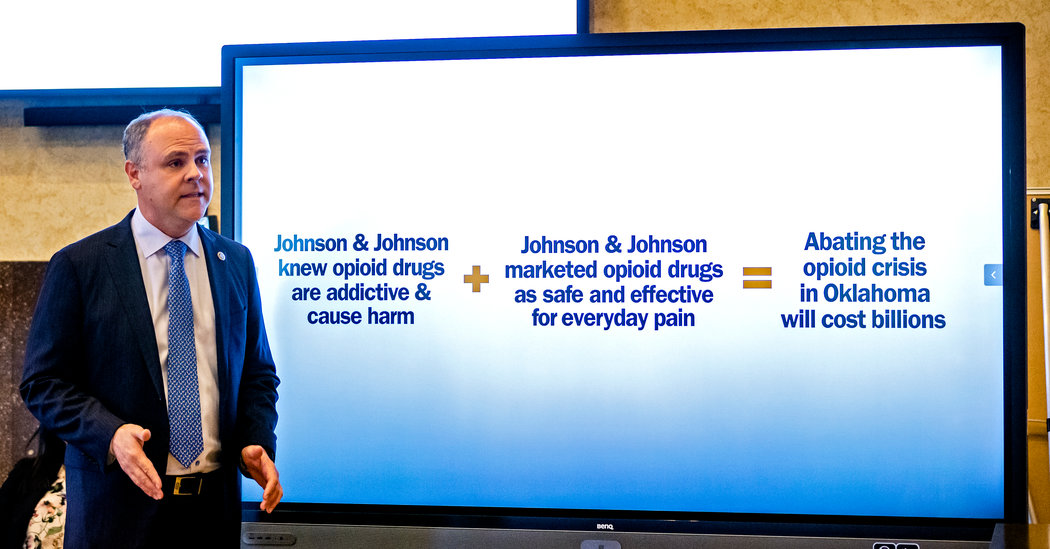
Some two dozen opioid manufacturers, drug distributors and retailers are now being sued by states, counties, cities and tribes across the nation for their roles in the opioid crisis, yet Johnson & Johnson, the corporate giant, wound up as the only company on trial in Oklahoma despite the fact that its drugs accounted for only about 1 percent of opioid sales in the state.
On Monday, a district court judge in Norman, Okla., ruled against the company, ordering it to pay the state $572 million. Here’s why Johnson & Johnson was the only defendant on trial:
-
All the plaintiffs who filed opioid lawsuits have named drug manufacturers as defendants, largely based on which companies sold opioids on their turf. A smaller number of plaintiffs also have sued the giant distribution companies and a still smaller subset have also gone after retailers like CVS, Walmart and Rite Aid. Oklahoma was among the first states to file suit in an attempt to hold pharmaceutical companies responsible for its opioid epidemic, and it acted before the idea of also targeting distributors and retailers had been developed.
-
Oklahoma sued two other drug manufacturers, Purdue Pharma and Teva Pharmaceuticals, in addition to Johnson & Johnson. But they both settled with the state earlier this year — Purdue for $270 million, Teva for $85 million — without admitting wrongdoing. Purdue Pharma is widely seen as bearing a great deal of the responsibility for starting the epidemic with its aggressive marketing of OxyContin. But as the trial approached, Purdue began exploring filing for Chapter 11 bankruptcy reorganization, a step that could have insulated it from legal judgments. That gave the company greater leverage to push for a settlement with Oklahoma.
-
Johnson & Johnson also had the deepest pockets of all the companies Oklahoma sued, and it was the only one that refused to settle. The company has long had a reputation for being ready to risk jury trials, as it has in cases involving its talc-based baby powder, the antipsychotic drug Risperdal and the blood-thinner medication Xarelto. The company contended at trial that it should not shoulder the blame for the opioid epidemic because its opioids had such modest sales, and because its drugs were regulated by state and federal agencies. Oklahoma argued that the company had a broader role than its own sales. It developed a poppy strain that, when refined, became a central ingredient for drugs like oxycodone and hydrocodone. And Johnson & Johnson was the top supplier of base opioid materials to other pharmaceutical companies. The state also maintained that Johnson & Johnson’s sales staff relentlessly promoted opioids generally, not just the company’s own, in some 150,000 visits to Oklahoma doctors.
[Like the Science Times page on Facebook. | Sign up for the Science Times newsletter.]

